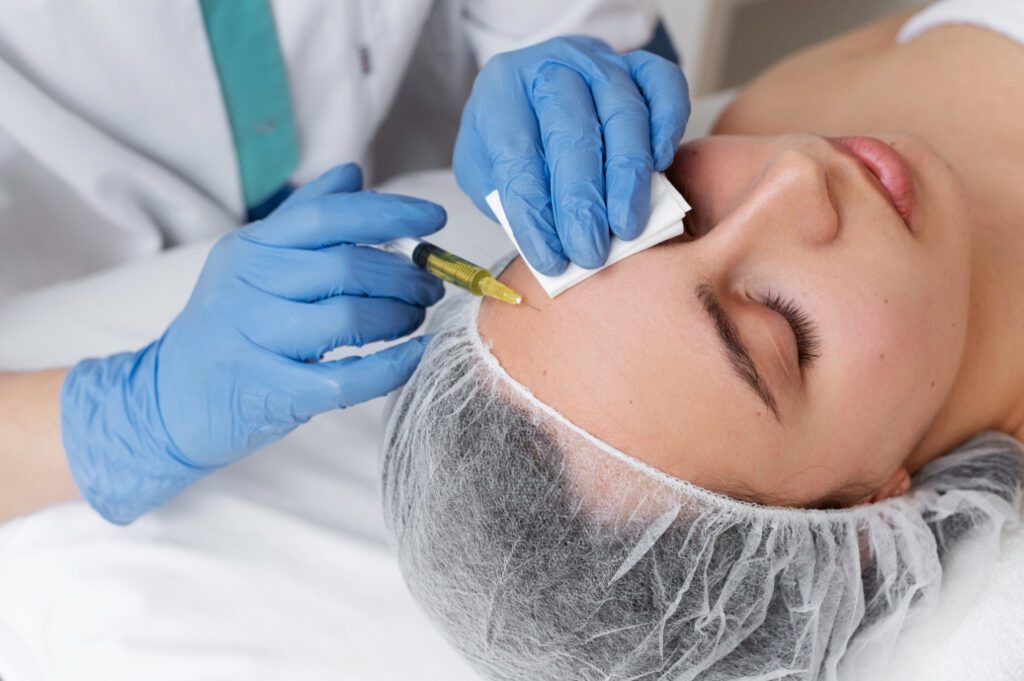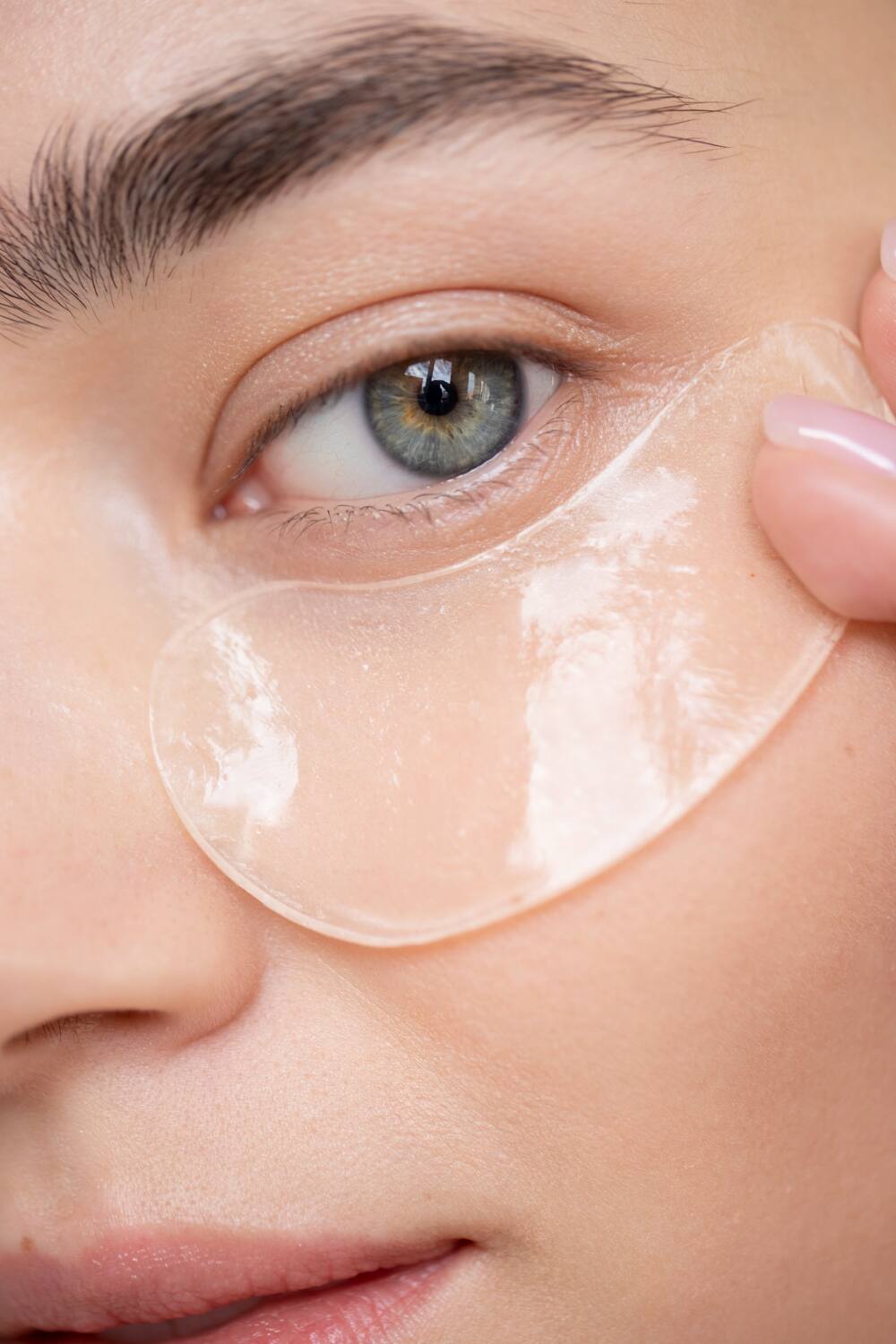Glutathione injection side effects are an important consideration if you are thinking of glutathione injections to improve your skin’s health, reverse signs of aging, or reduce hyperpigmentation. Glutathione injections have gained immense popularity in the skincare world due to their antioxidant properties and skin-lightening abilities. However, knowing the side effects and risks involved before getting them is very important.
This guide discusses the side effects, precautions taken during administration, and alternative treatments for glutathione injections. It would help make a well-informed decision for your skin and overall health.
What Is Glutathione and Why Is It Used in Skin Care?
Glutathione is a naturally occurring antioxidant in the body, composed of three amino acids: glycine, cysteine, and glutamic acid. It plays a vital role in detoxifying the body, neutralizing harmful free radicals, and supporting the immune system. In skincare, glutathione is celebrated for its:
- Skin lightening: Glutathione may inhibit melanin production, leading to a lighter skin tone and improved complexion.
- Anti-aging benefits: It is an antioxidant that can neutralize oxidative stress, which can cause wrinkles and fine lines.
- Hyperpigmentation treatment: Glutathione injections may fade dark spots and blemishes resulting from melasma, sun damage, or acne scars.
Although these benefits are attractive, the possible side effects of glutathione injections must be weighed against them.
“Good skin doesn’t happen by chance, it happens by choice.”
Potential Glutathione Injection Side Effects
Here are some glutathione injection side effects to consider before opting for glutathione injections:
1. Skin Reactions: Rash and Irritation
Skin irritation is one of the most common glutathione injection side effects. Some individuals may experience rashes, itching, or redness at the injection site. These reactions are generally mild but should be monitored closely. Seek immediate medical attention if symptoms are severe or persist.
2. Allergic Reactions
Though very rare, allergic reactions can occur due to glutathione injections. Symptoms include swelling, dizziness, shortness of breath, or chest tightness. In case you have any of these symptoms, seek immediate medical attention.
3. Headaches and Dizziness
Some people report experiencing headaches or dizziness after glutathione injections. While these effects are typically short-lived, consult your healthcare provider if they become frequent or severe.
4. Liver Function Concerns
Glutathione is naturally produced by the liver and supports detoxification. However, excessive use of glutathione injections might strain liver function. Individuals with a history of liver disease should discuss this with their physician before initiating the treatment.
5. Increased Risk of Asthma Symptoms
In patients who have asthma, glutathione inhalation may worsen symptoms. Injections are less likely to have this effect, but one should consult a physician if suffering from respiratory problems.
6. Potential Kidney Impact
Excessive doses of glutathione can lead to some risks for the kidneys, especially for people who already have health problems. Make sure to tell your doctor about any previous health conditions before using glutathione.
7. Gastrointestinal Problems
Some individuals experience certain glutathione injection side effects like nausea, vomiting, or stomach cramps. These symptoms are usually mild but can be uncomfortable. If the condition persists, stop taking glutathione and seek advice from your doctor.
How Safe Are Glutathione Injections?
The safety of glutathione injections depends on proper administration, dosage, and individual health factors. To minimize glutathione injection side effects and risks:
- Ensure a licensed healthcare professional administrator injections.
- Follow recommended dosage guidelines to avoid potential side effects.
- Limit prolonged use, as long-term safety data is limited.
When used responsibly, glutathione injections can be safe for short-term treatments. Always monitor your health and consult your doctor if adverse reactions occur.
Alternatives to Glutathione Injections for Skin Care
If you’re concerned about the glutathione injection side effects, consider these safer alternatives:
1. Topical Glutathione Creams
Topical creams offer a non-invasive way to get glutathione’s benefits, such as skin brightening and reducing hyperpigmentation. Though results may take longer, this option eliminates the risks associated with injections.
2. Vitamin C Serums
Vitamin C is a powerful antioxidant that can remove dark spots, make the skin look smoother, and defend against environmental damage. It is more accessible and less invasive compared to injection treatments.
3. Laser Treatments for Hyperpigmentation
Laser therapies, like fractional CO2 or picosecond lasers, effectively target dark spots and discoloration. They’re a popular choice for achieving radiant skin without the risks of glutathione injection side effects.
Expert Opinions on Glutathione Injections
Dermatologists emphasize the importance of consulting a healthcare provider before treating skin. According to Dr. Shari Marchbein, a board-certified dermatologist, understanding the glutathione injection side effects and benefits of glutathione injections is crucial for informed decision-making. A 2016 study also highlights the concerns around the safety and effectiveness of glutathione injections for skin lightening, stressing the lack of adequate safety data available at that time.
Make an Informed Decision About Glutathione Injections
Glutathione injections have the potential to enhance the skin, but they pose risks such as skin irritation, allergic reactions, and liver and kidney problems. Before proceeding, consult a qualified healthcare professional to determine if this treatment aligns with your skin type and overall health
If you’re hesitant about skin whitening injections, consider alternative treatments like topical creams, Vitamin C serums, or laser therapies. By understanding the risks, benefits, and alternatives, you can make an educated choice about glutathione injections and prioritize your skin’s well-being. Your skin’s health and safety should always be a top priority.
Learn more about Skin Whitening Injections to understand the different treatment options and their risks before making a decision.
FAQs About Glutathione Injection Side Effects
Can glutathione injections lighten your skin permanently?
Glutathione injections may provide temporary skin-lightening effects, but results vary between individuals. Long-term use carries potential risks.
Are glutathione injections safe for everyone?
While glutathione injections are generally safe when administered by a professional, they may not be suitable for individuals with liver or kidney issues.
What should I do if I experience side effects from glutathione injections?
Seek emergency care for severe symptoms like difficulty breathing or swelling. For mild reactions, consult your healthcare provider promptly.


